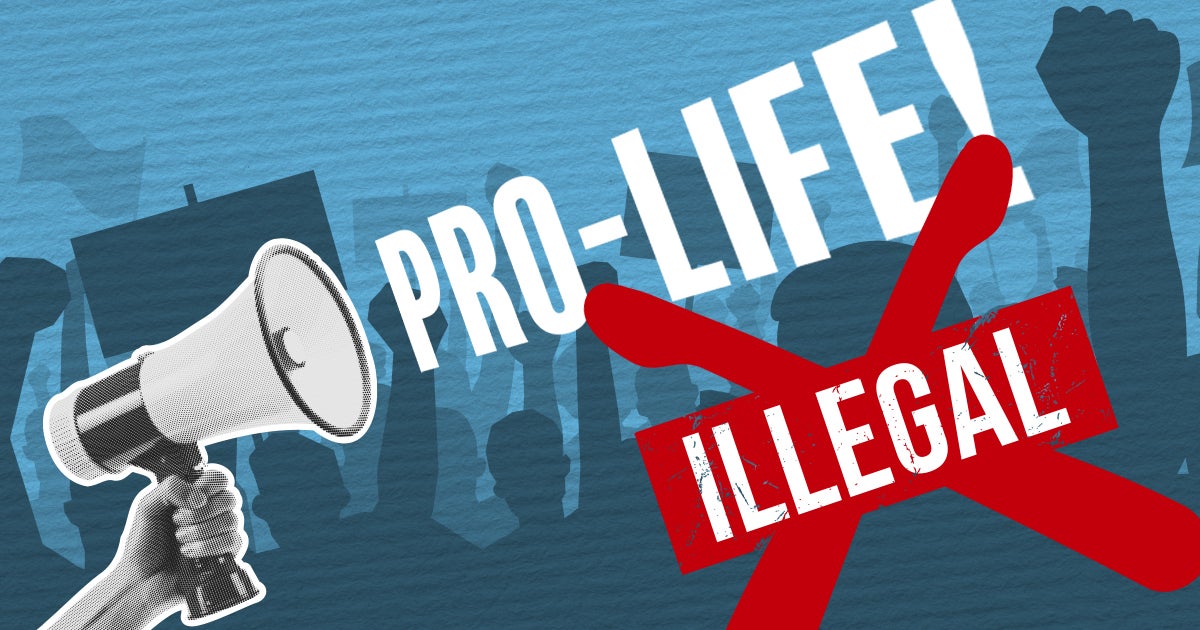
by Jorge Gomez • 2 minutes
The City of Asheville, North Carolina passed an ordinance to silence the free speech of our client, Zachary Hebb.
Zachary’s religious beliefs compel him to share his faith and provide alternatives to abortion with those seeking to terminate their pregnancy. He shares this life-affirming message with individuals visiting the Asheville Health Center. He offers tangible aid for keeping babies, informs listeners about adoption and shares his Christian faith using an amplifier and speaking in a conversational tone at a volume level appropriate for the area.
During the time Hebb was sharing his messages publicly, the City initiated a project to revamp its noise ordinance. The top noise concerns were neighborhood noise, barking dogs, construction noise, loud music, industrial/institutional facilities and equipment, fireworks and trash pick-up. The proposed noise ordinance did not contain restrictions on amplified speech outside medical clinics or public schools.
But in a separate meeting, a city council member met with a representative from Planned Parenthood South Atlantic and staff members of the Asheville Health Clinic regarding concerns about pro-life activity outside the clinic. The city council member then sent proposed language containing an amplification ban that would put a buffer zone around the health clinic.
Eventually that language was included in the city ordinance, barring Hebb from communicating his message near the health clinic. The ordinance applies decibel level caps on speech delivered from public places, but not private property. Clinic staff then played amplified music from the property to drown out Hebb’s unamplified messages.
Our attorneys sued in federal district court on behalf of Zachary. We argued that public speech in a public place is protected by the First Amendment. We explained to the court that Americans have a right to express their point of view, religious or secular, perhaps no more so than on a public sidewalk.
The district court ruled favorably for Zachary, finding that Asheville’s amplification ban violates the First Amendment and his right to free speech. In response to the lower court decision, the city filed an appeal to the 4th U.S. Circuit Court of Appeals.
This week, First Liberty and the Thomas More Society filed a brief asking the 4th Circuit to uphold the lower court decision.
“As the lower court found, the ordinance passed by the city of Asheville is undeniably vague and deprives our client of his free speech rights,” said First Liberty Senior Counsel Nate Kellum. “The policy effectively bans our client from being able to express his message simply because it is pro-life. Silencing unpreferred speech is simply shameful and violates the First Amendment.”
The First Amendment becomes meaningless when the state disfavors and restricts the speech and viewpoints of Americans, including those whose actions and messages are informed by religious convictions. The freedom of expression that is so deeply cherished in America cannot flourish if the government has the power to make the peaceful, free exchange of ideas a crime.
People of faith should not be silenced simply because they express a message the government does not like. First Liberty will continue to defend the right of all Americans from vindictive laws that restrict their First Amendment rights.
Learn More:
First Liberty Challenges Colorado Law That Targets Faith Based Pro-Life Speech